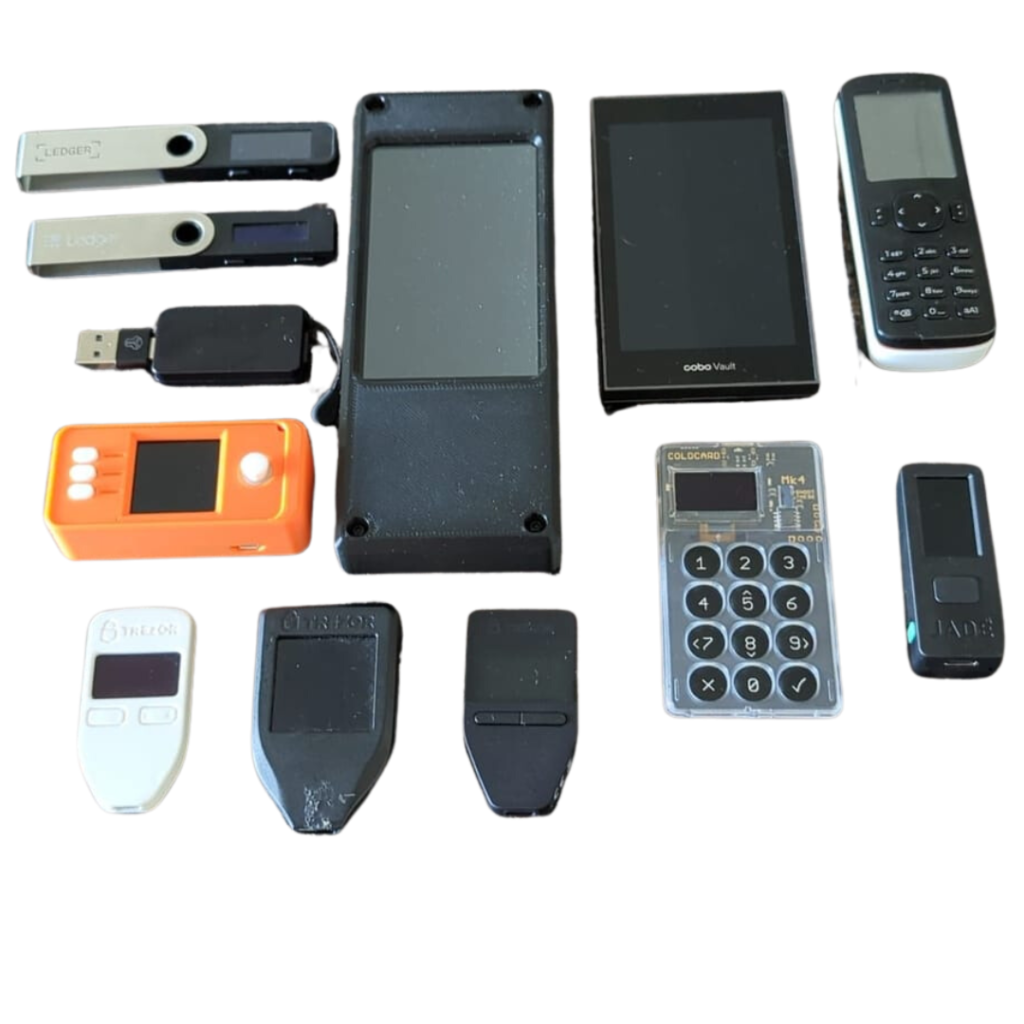Two Ways to Hold Your Bitcoin

Self-Custody vs Custodial Wallets
A custodial wallet is when you trust a third party manage your wallet and your keys. This is done to make the process simple and similar to how online banking works today. Custodial wallets are what you get with centralized exchanges like Coinbase, Binance, Krakken, crypto.com and several others.
A non-custodial or self-custody wallet means that you have the sole custody of the keys used to control your Bitcoin.
So this means YOU have the responsibility of protecting and backing up those keys in a safe manner. If you lose your keys you lose your Bitcoin forever.
By using your own Bitcoin wallet instead of leaving the bitcoin on an exchange, you can have full and exclusive control over your money.
This is called Bitcoin self-custody.
Why Self-Custody your Bitcoin?
Ultimate Control
When you self-custody, you’re the master of your Bitcoin domain. No intermediaries, no third parties. It’s all in your hands, literally.
Security Matters
Leaving your precious satoshis on exchanges or custodial wallets is like leaving your wallet on a park bench. Self-custody reduces the risk of hacks and gives you peace of mind.
Privacy is King
With self-custody, you’re not just a face in the crowd. It adds an extra layer of privacy, and in the crypto world, privacy is golden.
Decentralization in Action
Bitcoin is all about decentralization, right? By self-custodying, you’re contributing to this ethos. It’s like being a mini Bitcoin revolutionary!
Long-Term HODL
If you’re in it for the long haul, self-custody aligns perfectly. You won’t be swayed by market FUD or tempted to panic sell. Your hands will be diamond strong!
Self-custody Bitcoin Wallets
Not all wallets provide the same level of security and usability so do your research and understand the risks.
When choosing a wallet you need to find a balance between control and complexity.
User experience simplicity often comes at the expense of control and privacy.
Mobile Bitcoin Wallets – Pros/Cons & Recommendations
Pros
- Portable and convenient; ideal when making transactions face-to-face
- Designed to use QR codes to make quick and seamless transactions
Cons
- App marketplaces can delist/remove wallet making it difficult to receive future updates
- Damage or loss of device can potentially lead to loss of funds
Recommeneded mobile wallets for ios.
Recommended mobile wallets for Android.
Desktop Bitcoin Wallets – Pros/Cons & Recommendations
Pros
- Environment enables users to have complete control over funds
- Some desktop wallets offer hardware wallet support, or can operate as full nodes
Cons
- Difficult to utilize QR codes when making transactions
- Susceptible to bitcoin-stealing malware/spyware/viruses
Recommeneded mobile wallets for Windows Desktop.
- Armory
- Bitcoin Core
- Bitcoin Knots
- Bither
- BitPay Wallet
- Electrum
- Blockstream Green
- Sparrow Wallet
- Specter Desktop
- Wasabi Wallet
Recommeneded mobile wallets for Mac Desktop.
- Armory
- Bitcoin Core
- Bitcoin Knots
- Bither
- BitPay Wallet
- Electrum
- Blockstream Green
- Sparrow Wallet
- Specter Desktop
- Wasabi Wallet
Recommeneded mobile wallets for Linux Desktop.
Hardware Bitcoin Wallets – Pros/Cons & Recommendations
Pros
- One of the most secure methods to store funds
- Ideal for storing large amounts of bitcoin
Cons
- Difficult to use while mobile; not designed for scanning QR codes
- Loss of device without proper backup can make funds unrecoverable
Recommended Hardware wallets
- BitBox02
- Coldcard
- Coldcard Q
- Cypherock X1
- Blockstream Jade
- KeepKey
- Ledger Nano S
- Passport
- Seedsigner
- Trezor Model T
- Trezor One

Quick Demo of setting up a desktop wallet using Sparrow.

